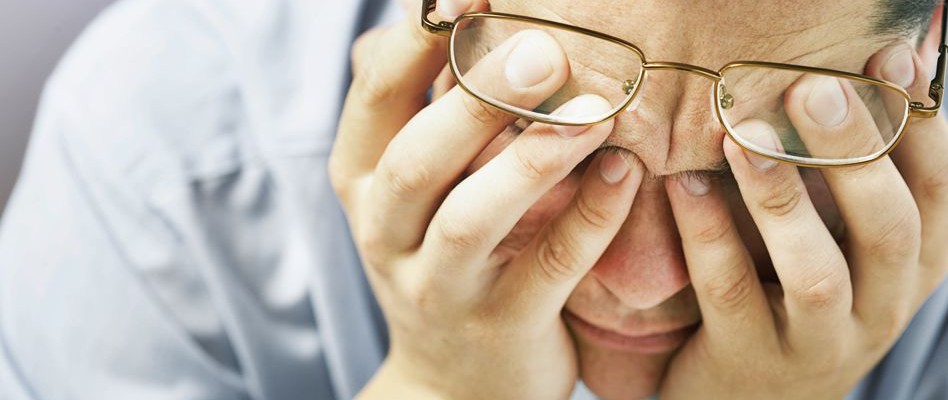Part 2 - Fight, Flight, Freeze & Submit

Don't Just Stand There, Do Something!
The duration, intensity, frequency, duration, and impact of stress vary significantly. Each person responds to this pressure physically, psychologically and emotionally. Because of our myriad individual differences, the degree and manner in which we respond to stress can be beneficial or destructive.
THE POWER OF CHOICE
We always the ability to choose even if it is a decision to do nothing. When it comes to our response to stressful situations we can consider physical, psychological, social and emotional options. The physical and social circumstances may not offer any choices, but we can always choose how we will respond psychologically and emotionally.
STRESS AND WHO WE ARE
The choices we have made throughout our lives have, in no small degree, determined our behaviour and character. In other words, the decisions we have made have established who we are. But take courage, we still can choose. We don't have to stay the way we are; we can change our character and behaviour.
Will, You Choose to Fight, Flee, Freeze or Submit?
THE PHYSIOLOGY OF STRESS
The body's physiological response to stress, whether we assess the pressure as being positive or negative, is the same, but the impact may vary in intensity. In times of stress, adrenaline surges into the circulatory system. The amount of this potent hormone causes this variation. As blood flows to every part of our body, every organ is affected.
Let's look at what happens when we suddenly come across a very poisonous snake. At the first sense of danger, adrenaline courses into our system; this is the body's automatic response in an endeavour to protect itself. To preserve itself the body prepares itself to either battle with the threat, 'fight' or to run away, 'flight.' The response is called the 'fight or flight' response. Immediately we feel fear as the emotional and psychological effects kick in.
So how does adrenaline prepare us for fight or flight? A very simplistic summary of the effects of this hormone follow:
- Breathing becomes quicker and deeper to get more oxygen into the system.
- The heart rate increases to move the oxygen to heart, brain, and muscles in particular.
- The brain becomes alert.
- The pupils dilate.
- The senses become more acute.
- The blood flow is regulated to channel more blood to the lungs, heart, muscles, and brain, and less to the digestive and elimination systems.
- The blood vessels in the skin constrict.
- Adrenaline stimulates the neurotransmitters thus bringing the whole body into a state of efficiency and awareness.
In the first couple of seconds of becoming aware of the risk of severe physical harm, we have three major choices to make, fight it, run away or stand still and do nothing. Often automatic responses are made in such situations. We might scream, faint or wet ourselves. In case you find yourself in such a situation the following information might be helpful:
- Snakes strike at moving objects, so if the snake is close, it might not be wise to lift a foot to run away. Snakes strike very quickly.
- Snakes are deaf, so you can scream or call out all you like.
- Snakes are more frightened of you that you are of them. I know some of you think that that is impossible, it is sometimes better to stand still until it goes away.
- Most people who are bitten by a snake have tried to kill it.
Two other responses we could make are 'freeze' or ' submit.' We 'freeze' when our senses have been so shocked that the brain virtually shuts down; we cannot think and make decisions; the mind is numb. When we 'freeze' it is involuntary. To 'submit' is when a person makes a voluntary decision to give in; to accept the consequences without resistance.
SHORT-TERM BENEFIT, LONG-TERM DAMAGE
When a short-term, stressful event ceases, adrenaline is absorbed back into the system rather quickly, and the physiological changes return to normal, this is called the recovery stage. Psychological and sociological effects may stay with us for a long time, it all depends on our thinking. It is long-term stress, both positive or negative, that usually has a negative impact on our health and well-being, i.e., when the adrenaline rush and the recover stage follow closely, one after the other. Particularly with negative stress, the anticipation of future conflict may eliminate any recovery; adrenaline is continually in the system during the waking hours, the body in a continual state of heightened awareness. In this situation, the body does not function normally, and health is impaired.
SOCIOLOGICAL STRESS
When ongoing, negative stress is the result of the unresolved conflict in human relationships, the response to stress is far more complicated, mentally and socially. Take the example of a woman trapped in a physically and mentally abusive relationship. Her emotions are in turmoil. She feels she will be a loser whether she 'fights' to defend herself, 'flees' but loses security for herself and the children, or 'freezes' but continues to suffer physical and mental trauma. Her weakened resilience, energy levels, coping ability, and rational thinking, results in her 'submitting,' accepting the situation as her lot in life. She may find solace in eating, drugs, movies, illicit sex, alcohol and the like, to self-medicate her emotional pain. A very stressful work environment can produce a similar effect.
STRESS AND THE MEDIA
Brain scans have shown that when we watch movies our brains respond in the same way, they would as if we were the actors, 'good' or 'bad.' We experience the fear, terror, love, sex, revenge, killing, frustration, rage, and physical and emotional trauma. Rapid mood swings create an adrenaline rush which can become addictive. The negative emotions compound the stress we already feel, while the positive emotions comfort us and artificially replaces the lack we feel in that area. And in the end, justice is done, and we experience that justice emotionally. But the next day the reality of our own lives takes over, and we seek to feel better by watching another movie. Reading fiction can have a similar impact. Watching some forms of sport or music can also artificially create significant mood stings. If our life is already stressful and we spend our leisure time in adrenaline-pumping entertainment, there is very little recovery time from extreme mood swings.
OUR TROUBLESOME IMAGINATION
Our imaginations can also add to stress in our lives. What we think about also triggers the brain as the real events would. Thinking about sad situations can make you sad, imagining yourself in a traumatic situation can elevate stress levels. Anticipating danger or adverse events can create anxiety. The optimist is not free of stress, but the pessimist is continually overwhelmed by stressful thoughts.
TRAINING OUR CHILDREN
What are we teaching our children? Do your children seem to 'need' exciting events, games, and entertainment to feel 'normal'? How do children cope with huge emotional swings? Parents cannot compete with the media and children find calmer entertainment and amusements 'boring'. When children are very young and cannot tell the difference between fact and fiction, imagine the trauma some children experience as a result of watching action movies. The calmer the entertainment and amusements children experience the easier it will be to manage their behaviour. Adults are not the only ones that become addicted to adrenaline rushes.
MY FEARFUL EXPERIENCE
Long before the days or television in Australia, when I was about five or six years old, my parents, on occasion, would take our family out to the Newsreel. The Newsreel was a small theatre that would show sessions or news clips, cartoons, The Three Stooges, other short comedy features, sport and Crime Does Not Pay.
It is clear that I had not reached the stage of being able to discern between fact and fiction for it was while I watched some of these 'entertaining' programs that I first experienced gut-wrenching fear. The following are some instances that scared me:
- 'Bad' men throwing knives at one of the Three Stooges.
- 'Bad' men shooting four police officers in Crime Does Not Pay.
- A comedy where a muscle-bound athlete broke both arms and legs of a weakling.
- An old-time, slapstick comedy hospital where a patient had arms and legs sawn off and sewn back in the wrong places.
I am concerned about the impact movies that portray sex, violence, deception has, not only on children but adults as well. When so-called mature adults, physically and verbally attack actors and actresses for the roles they played in the soapies; when soccer fans of the losing team beat up fans in the winning team; when players of violent computer games take part in violent crimes, it indicates how strong an impact these forms of entertainment have on society. Of cause, it is not everyone who acts out what they watch, but no-one can deny the significant increase in violent and sexual crimes.
By
Richard Warden



